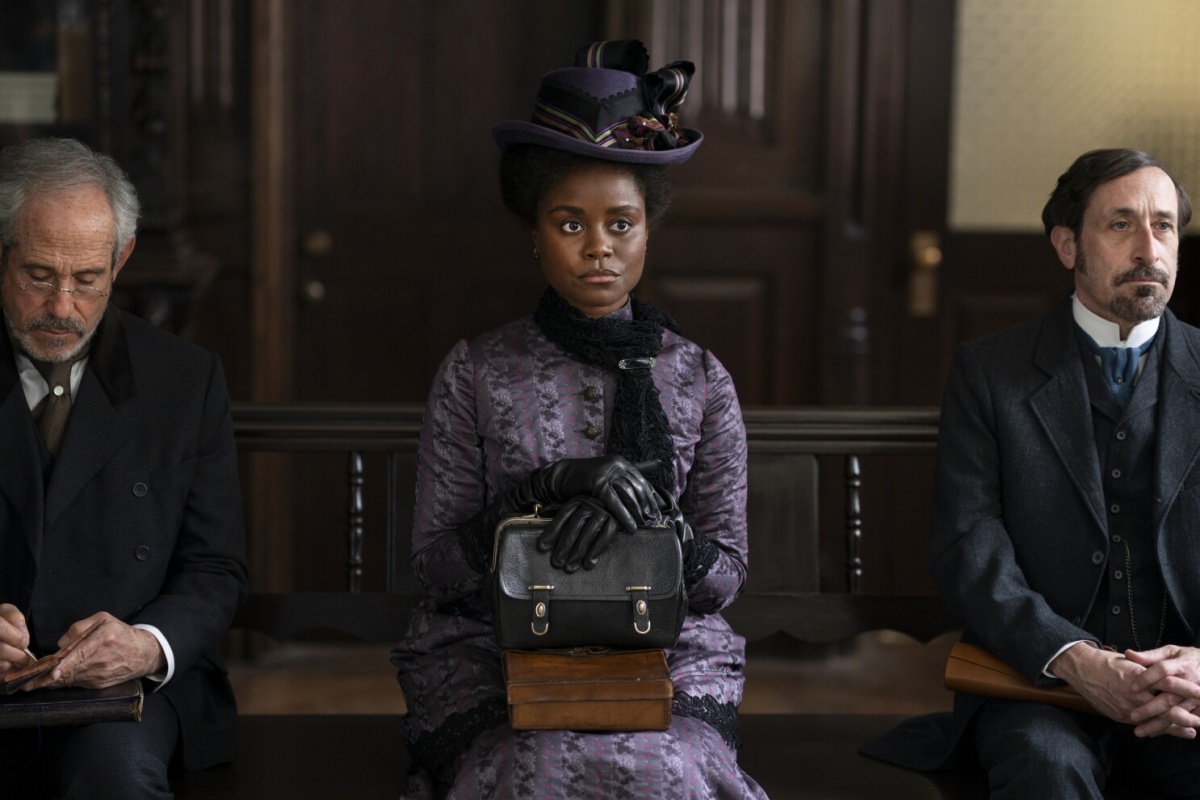The Gilded Age Finally Spotlights the Reality of Black Lives in the Era’s New York

When the cast for The Gilded Age was announced and I saw that Broadway actress Denée Benton would be playing Peggy Scott, I was concerned about how deeply series creator Julian Fellowes would go into depicting Black America during this era. Thankfully, it is off to a good start.
In last night’s episode, Peggy has the opportunity to sell her stories to a newspaper called “The Christian Advocate.” However, due to fears of losing their readership in the South, they ask Peggy to change the protagonist from a young Black girl to a poor white one.
Adding more insult to injury, they ask her to sign a contract that will make it so she can never publicly claim the stories as her own work.
Peggy turns down the opportunity and, in doing so, allows the audience to ask themselves how many Black people took that deal in order to make a living regardless of not being able to publicly claim their stories.
According to the L.A. Times, while Peggy isn’t based on a single historical Black woman, she is inspired by Black female trailblazers like journalist Ida B. Wells, teacher and novelist Julia C. Collins, and New York’s first Black female doctor, Susan McKinney Steward.
In order to accurately depict this, the show brought in Erica Armstrong Dunbar, a Rutgers University history professor who specializes in Black American women of the 18th and 19th centuries, as a historical consultant and co-executive producer.
“It was very important for Julian Fellowes to have a world that was emblematic of what existed in the 1880s,” she explained to the L.A. Times. “And to do a show on the Gilded Age on this time period and to not include Black New Yorkers would be more than problematic.”
Fellowes himself made similar statements that he wanted to make this new show “distinctively American.”
“And I didn’t believe I could do that without having a Black narrative and a Black family alongside the others,” the Downton Abbey creator said. “It just didn’t feel right to, actually.”
Dunbar continued: “Julian was intentional about drawing from multiple women’s lives in order to create a fictional character who embodies the spirit of the 1880s for young Black women in the elite.”
For Benton, who is no stranger to playing a period role, this opportunity to allowed her to play a character written as a Black woman.
“In my second audition, [director] Michael Engler, asked me how I felt about some of the scripts and as a Black woman, how I felt about how the story was being told,” Benton told TheWrap. “And I really got the opportunity to be honest about some of the things that I thought could be richer and more authentic. And it really was a process that I got to collaborate in from October 2019 to what you guys saw on screen today.”
“I’ve played a couple of women from the 1800s, but none of them had been written as Black women,” Benton said. “And so I was really excited to have this Black woman from the 1800s coming from a socioeconomic status that the media never really portrays. And I felt a really immediate kinship to [Peggy] because her identity praxis just matched with mine in astounding ways.”
I’m looking forward to seeing this continue.
(image: HBO)
Have a tip we should know? tips@themarysue.com